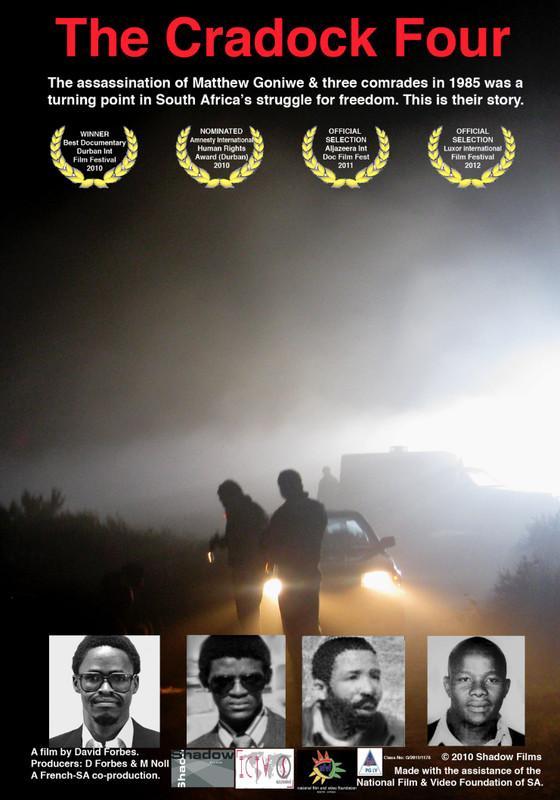Four Decades On: The Cradock Four Families’ Unyielding Pursuit of Justice
Marking 40 years since a harrowing chapter in South Africa’s history, the families of the Cradock Four continue their steadfast campaign for justice. In 1985, four prominent anti-apartheid activists—Matthew Goniwe, Fort Calata, Sparrow Mkonto, and Sicelo Mhlauli—were forcibly taken and brutally murdered by apartheid security forces in the Eastern Cape. Their deaths remain emblematic of the violent repression that defined that era. Despite decades passing, these families have faced persistent obstacles in uncovering truth and securing accountability. This article explores their ongoing struggle for recognition and reparations while reflecting on how their fight shapes contemporary conversations about historical injustices and reconciliation efforts across South Africa.
The Enduring Demand for Justice: Revisiting the Tragedy of the Cradock Four
The brutal assassination of Matthew Goniwe, Fort Calata, Sparrow Mkonto, and Sicelo Mhlauli sent shockwaves through South Africa’s anti-apartheid movement. These men were not only community leaders but also symbols of resistance against systemic oppression. Over forty years later, their relatives remain vocal advocates for a comprehensive investigation into these killings—a demand fueled by decades-long delays in official inquiries.
The families emphasize several critical calls to action:
- A sincere governmental apology acknowledging state responsibility for these human rights violations.
- Complete transparency regarding all classified documents related to the murders.
- Restorative justice programs designed to address both material reparations and emotional healing.
This pursuit transcends personal closure; it serves as a vital reminder that apartheid-era atrocities must be fully confronted to prevent repetition. Their story parallels other global movements seeking redress from historical state violence—for instance, recent efforts by Indigenous communities worldwide demanding acknowledgment for past abuses highlight a shared quest for dignity through truth-telling.
Towards Structural Change: Addressing Systemic Failures Rooted in Apartheid-Era Violence
The unresolved nature of cases like that of the Cradock Four underscores broader deficiencies within South Africa’s justice system when dealing with apartheid-era crimes. Activists argue that without meaningful reforms targeting institutional transparency and accountability mechanisms within law enforcement agencies—and judicial bodies—the wounds inflicted during apartheid will continue to fester beneath society’s surface.
Proposed reforms include:
- Create independent oversight commissions, empowered to investigate police misconduct linked to political violence both past and present.
- Expand restorative justice frameworks, facilitating dialogue between survivors’ families and former perpetrators where possible—an approach proven effective in post-conflict societies such as Rwanda after its genocide period.
- Sustain increased funding support for civil society organizations dedicated to human rights advocacy related to historical injustices.
A renewed commitment from government institutions is essential—not only as an act of reparation but also as a foundation upon which societal trust can be rebuilt after decades marked by impunity surrounding politically motivated crimes.
The Rising Tide of Public Solidarity with Cradock Four Families’ Cause
Lately there has been growing public momentum backing the families’ demands for answers about what happened so many years ago. Community groups across South Africa have organized commemorative events honoring those lost while educating younger generations on this painful legacy—a crucial step given surveys indicating many youth today lack detailed knowledge about apartheid’s darker chapters despite its profound impact on modern society (Statistics SA reports show over one-third under age 30 are unfamiliar with key events).
| Main Focus Areas Driving Support Efforts | Description & Impact Examples (2024) |
|---|---|
| Civic Education Campaigns | Museums like Freedom Park have launched interactive exhibits highlighting stories like those of the Cradock Four; social media campaigns using hashtags such as #JusticeForCradock amplify awareness globally. |
| Community Empowerment Initiatives | Nongovernmental organizations facilitate forums where affected communities share experiences fostering solidarity; local schools incorporate modules on transitional justice into curricula. |
| Mainstream Media Engagement | Broadcasters feature documentaries revisiting unsolved apartheid-era cases; investigative journalism uncovers new leads prompting calls for reopened probes. |
| Diplomatic & Political Pressure | Civil society coalitions lobby parliamentarians demanding formal inquiries; international human rights bodies monitor progress ensuring compliance with global standards. |
A Path Forward: Healing Through Recognition and Reconciliation
The unwavering determination demonstrated by these families highlights how confronting painful histories is indispensable not just at an individual level but nationally too—as part of building an inclusive future grounded in equity rather than denial or forgetfulness. The renewed public engagement around this cause signals hope amid lingering wounds left unhealed since apartheid ended nearly three decades ago.
The journey toward full reconciliation remains complex yet necessary—with truth commissions playing pivotal roles historically—and ongoing vigilance required so lessons learned translate into lasting protections against abuses.
Ultimately,the legacy carried forward by Matthew Goniwe,Fort Calata,Sparrow Mkonto,and Sicelo Mhlauli inspires continued activism aimed at ensuring no victim’s voice fades away unheard or unacknowledged.
Their sacrifice stands testament not only within South African borders,but resonates globally among all who champion human dignity amidst adversity.
